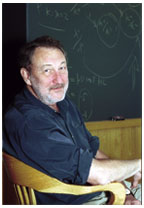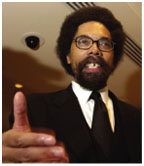June 5, 2002: Notebook

Princeton’s 9/11 projects at work
Photo by Denise Applewhite
The work molecular biologist Martin Weigert is doing in Schultz Laboratory could lead to better lives for millions of Americans suffering from the auto-immune disease lupus.
Weigert and his collaborators at the University of Pennsylvania and the University of Tennessee have discovered what could be a primary cause of the disease — a point at which the immune system’s mechanism for making disease-fighting antibodies breaks down and allows antibodies to attack the body’s own DNA, an identifying characteristic of lupus.
As many as 4 million Americans have lupus, a disease with symptoms that range in severity from mild rashes to organ failure. According to the Centers for Disease Control, the number of deaths due to lupus has risen from 879 in 1979 to 1,406 in 1998. During that 20-year period, 22,861 people died from the disease.
Weigert’s research could lead to new treatments that may be ready for testing in three years. He is already developing peptides, small protein fragments, which are designed to block the disease in mice and could lead to similar treatments for humans. Currently, lupus treatments call for immuno-suppression, which compromises the entire immune system, and gene therapy similar to that undergone by cancer patients, says Weigert.
Weigert has been studying immunology for nearly 40 years and pioneered
the use of genetically altered mice in researching how certain cells are
regulated and their impact on autoimmune disease. This year, his 10th
at Princeton after working at the Institute for Cancer Research in Philadelphia,
Weigert again taught a freshman seminar on immune systems and an advanced
immunology course for graduate students. ![]()
By A.D.
Princeton’s 9/11 projects at work
The university’s efforts to support New York City’s renewal and recovery from the September 11th terrorist attacks have already delivered some relief through an arts program made available to thousands of schoolchildren.
The Arts Alive program, one of four to which Princeton dedicated a total of $1 million earlier this year, ran in conjunction with Manhattan nonprofit Hospital Audiences, Inc., and provided tickets to 195 arts and cultural events for nearly 11,000 children in New York and New Jersey, along with corresponding educational workshops. Nearly 300 undergraduates and graduate students were involved with Arts Alive, leading or assisting in workshops covering everything from ballet and Beauty and the Beast to astrophysics and The Crucible.
“I think it’s a really unique program,” said Maureen Monagle ’04, a history major whose class adopted Arts Alive as a special project. “I think that Princeton invested in something that had true impact on New York City and its students and utilized the talents of Princeton students. It was tangible and memorable.”
Another one of the programs, focused on research projects, has also produced something tangible: an informational map, “Around Ground Zero,” which was partly funded by a university grant and created by Laura Kurgan, assistant professor at the School of Architecture. Janette Kim ’01, Donald Shillingburg ’01, and Bethia Liu GS assisted Kurgan with the map, which was developed in conjunction with neighborhood groups and the Coalition for the Rebuilding of Lower Manhattan. It delineates the impact of the attacks on the area around Ground Zero and what has risen in their wake, including temporary memorial sites, open viewing areas, and new public transportation routes.
More grants are expected to go to faculty, staff, and undergraduates and graduates who wish to lend their expertise in recovery efforts or pursue research related to the attack and rebuilding efforts.
Princeton’s Justice Scholarship Program at New York’s John Jay College of Criminal Justice, which lost more than 100 students and alumni in the attack, is still accepting applications for 10 $2,000 awards to be handed out for next year.
The fourth program, designed to offer outdoor experiences to youngsters, has been modified to one that will help New Jersey teachers deal with September 11 in their classrooms.
Some alumni donors have questioned the university’s funding of outside efforts. But Princeton administrators have stressed that the programs mesh with Princeton’s purposes and its role as a leader in American higher education.
President Tilghman and others cited the educational benefits for Princeton
students, who had to take on management, teaching, and mentoring roles
with the Arts Alive program, in particular, and the demand that came from
many students, staff, and alumni for a university-wide response to the
tragedy. ![]()
By A.D.
Photos by Princeton Communications
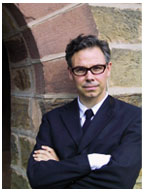
Architect Stan Allen *88 has been selected as dean of the School of Architecture, effective July 1. Allen, a founding principal and director of Field Operations, an interdiscplinary design practice, earned an M.A. in architecture at Princeton in 1988 after completing a B.A. in architectural history from Brown and a B.A. in architecture from Cooper Union’s School of Architecture. Since 1990, he has been a faculty member in Columbia’s Graduate School of Architecture, Planning and Preservation. He also has served as director of its master of science program in advanced architectural design since 1991.
The recipient of numerous design awards, fellowships, and competition prizes, Allen has designed galleries, workspaces, and single-family houses that have been built in New York, Los Angeles, and abroad.
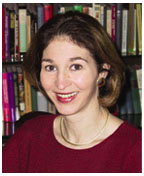 Anne-Marie
Slaughter ’80, a law professor and scholar of international affairs,
will join the faculty as dean of the Woodrow Wilson School this fall.
She will also have a faculty position in the Department of Politics. Currently,
Slaughter is a professor of international, foreign and comparative law
at Harvard and a professor at the John F. Kennedy School of Government
there.
Anne-Marie
Slaughter ’80, a law professor and scholar of international affairs,
will join the faculty as dean of the Woodrow Wilson School this fall.
She will also have a faculty position in the Department of Politics. Currently,
Slaughter is a professor of international, foreign and comparative law
at Harvard and a professor at the John F. Kennedy School of Government
there.
Slaughter majored in the Woodrow Wilson School at Princeton and received a certificate in European cultural studies. She was a Sachs scholar and studied at Oxford for two years after graduation. She earned her law degree at Harvard in 1985.
She has written or coedited four books and more than 50 articles for
scholarly and legal journals.
![]()
Photo: Cornel West *80 spoke at a hip-hop conference last summer in New York that focused on changing hip-hop’s violent image. (Spencer Platt/getty images)
Although Cornel West *80 has yet to return physically to Princeton, the religion professor’s e-mail and office address are in place, and he continues to engender discussion and controversy.
Just as Harvard students were speaking out against Harvard President Lawrence Summers because of West’s departure from Cambridge, a letter signed by five Princeton professors appeared in the New York Times on April 24 chastising West for calling Summers “the Ariel Sharon of American higher education” in an interview on National Public Radio.
Several professors at Princeton were taken aback by West’s comments, according to molecular biology professor Jacques Fresco, whose name was the only one printed with the letter to the editor. Fresco, who has been at Princeton for 40 years, said he was told the other names were omitted due to space constraints. He did not wish to divulge his colleagues’ names or comment any further on the letter or on West.
“It is important for our new faculty colleague Cornel West to know that even as we welcome him back in our midst, we look with strong disfavor upon his characterization of Lawrence H. Summers,” wrote Fresco and the others in the 174-word letter. “Such an analogy carries innuendoes and implications regarding both President Summers and Prime Minister Sharon that many on the Princeton faculty find highly inappropriate, indeed repugnant and intolerable.”
Professor of English John Fleming *63, in an essay in the April 30 Daily Princetonian, said that he found “most remarkable the statements made to the press by Professor West regarding his motives for leaving Harvard to come to Princeton. They might be summarized as a festival of self-indulgent self-regard. His interview with the New York Times reports nothing about Princeton as an institution, nothing about its faculty or its students, nothing about teaching here, nothing about the department (of which he is an alumnus) he will rejoin, nothing about research plans.”
West did not reply to several interview requests from PAW.
Responding to the criticism that came with West’s appointment, President Tilghman noted that West is a controversial figure who has not always been treated kindly by the media. But, she added, “he is also unquestionably one of the nation’s leading teachers and scholars in his field.”
Tilghman also confirmed that Princeton and West had been discussing his return prior to his well-publicized conversation with Summers last fall. One of West’s former colleagues told PAW that West had been contemplating and working toward the move for nearly 20 months.
In an e-mail, Tilghman stated the process had “followed the regular procedures of the university with respect to faculty appointments – a vote by the members of the department’s faculty, the solicitation of evaluations from major scholars in his field, and careful review by the faculty’s committee on appointments and advancements, which I chair.”
In terms of West’s extracurricular activities, which include getting arrested for protesting Sharon’s policies and serving on the Reparations Coordinating Committee — a group of lawyers and intellectuals aiding in the slavery reparations lawsuits being filed against corporations and possibly some universities in the future, including Princeton — Tilghman said they are protected by the principles of free speech and academic freedom.
“We ask of all our faculty that they dedicate themselves as teachers,
and distinguish themselves as scholars, but their political views are
not within the purview of the university to monitor,” she said. ![]()
By A.D.
As part of the Washington Post team that earned this year’s Pulitzer Prize for national reporting, Barton Gellman ’82 was honored for his reporting on the U.S.’s failed efforts in recent years to capture or kill Osama Bin Laden.
Winning an award for work spurred by the violent deaths of thousands is not something Gellman – a finalist twice before for America’s top journalism prize – takes lightly.
“We’re always building our best work on tragedy,” said Gellman, who taught a seminar at Princeton this spring as a Ferris Professor of Journalism. “Journalism is mainly about conflict. Anytime that your work is honored you have this feeling that you’re somehow benefiting from something awful, but you also hope that you’re making it more understandable to readers or exposing something that needs attention.”
Gellman, a special projects reporter at the Post’s New York bureau, credits Fortune magazine senior writer Peter Elkind ’80, his Daily Princetonian editor when they were both undergraduates, with helping him learn how to cover a news beat. His campus reportage included a labor dispute.
“That was where I really learned how to cover a running story,” Gellman says. “You’re not writing about something just once. You keep coming back and coming back, you learn to find different dimensions of the story, different angles.”
After two years at Oxford as a Rhodes scholar, Gellman worked on then Arizona Governor Bruce Babbitt’s presidential run. He then joined the Post and worked his way up from covering the D.C. courts to the national desk.
Gellman and his wife, Tracy, live in New York with their eight-year-old
triplets. ![]()
By A.D.
Click here for a fuller story on Gellman.
Photos by Denise Applewhite
 President
Bush has nominated economics professor Ben Bernanke to the seven-member
Federal Reserve Board. Bernanke, the Howard Harrison and Gabrielle Snyder
Beck Professor of Economics and Public Affairs, is the chair of the Department
of Economics. A macroeconomist with interests in monetary policy and macroeconomic
history, he is the director of the Program in Monetary Economics of the
National Bureau of Economic Research and a member of the bureau’s
Business Cycle Dating Committee. He also serves as editor of the American
Economic Review. His nomination is subject to approval by the U.S. Senate.
President
Bush has nominated economics professor Ben Bernanke to the seven-member
Federal Reserve Board. Bernanke, the Howard Harrison and Gabrielle Snyder
Beck Professor of Economics and Public Affairs, is the chair of the Department
of Economics. A macroeconomist with interests in monetary policy and macroeconomic
history, he is the director of the Program in Monetary Economics of the
National Bureau of Economic Research and a member of the bureau’s
Business Cycle Dating Committee. He also serves as editor of the American
Economic Review. His nomination is subject to approval by the U.S. Senate.
At its April meeting, the Board of Trustees approved the promotions of several faculty members. The three new full professors are Su Friedrich, humanities and visual arts; Jacqueline Stone, religion; and Zoltan Szabo, mathematics. Newly tenured to the position of associate professors are Edgar Choueiri, mechanical and aerospace engineering; Joshua Goldstein, Woodrow Wilson School and sociology; Frederick Hughson, molecular biology; Tali Mendelberg, politics; Isabelle Nabokov, anthropology; and Vance Smith, English.
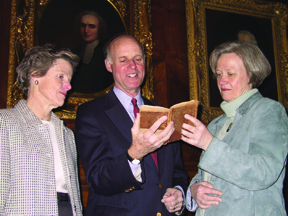 William
Harman ’63 has donated to Firestone Library a manuscript notebook
kept by John Witherspoon before he came to America to become Princeton’s
sixth president. Don Skemer, curator of the university’s rare books
manuscripts, said that Witherspoon’s notes about his legal and financial
difficulties from 1762—64 were of special interest. Last year Harman
donated a letter written by Witherspoon in 1787. Harman is a retired managing
director of Morgan Stanley.
William
Harman ’63 has donated to Firestone Library a manuscript notebook
kept by John Witherspoon before he came to America to become Princeton’s
sixth president. Don Skemer, curator of the university’s rare books
manuscripts, said that Witherspoon’s notes about his legal and financial
difficulties from 1762—64 were of special interest. Last year Harman
donated a letter written by Witherspoon in 1787. Harman is a retired managing
director of Morgan Stanley.
A one-day exhibit took place at Firestone Library on May 31 in which four rare Bibles owned by William Scheide ’36 were shown. On display were the “Gutenberg Bible,” c. 1454—55; the “36-line Bible,” no later than 1461; the “Mentelin Bible,” no later than 1460; and the “1462 Bible,” printed on vellum with illustrations, which is considered one of the finest Bibles extant.
The Third World Center, established in 1971 as a place for students of color to gather for socializing and for cultural and political events, will have a new name next month: the Carl A. Fields Center for Equality and Cultural Understanding. Named after a former Princeton dean who was the first African American to hold such a high-ranking post at an Ivy League school, the new name is intended to encourage “a more inclusive membership and a more robust, diverse program,” said Kathleen Deignan, dean of undergraduate students.
Two Ivy Club officers were charged with
serving alcohol to a minor and obstruction of the administration of law
after a 20-year-old female undergraduate was found passed out on the curb
of the eating club on Friday, May 10, Princeton Borough police said.
Ivy Club’s president received a summons for serving alcohol to a
minor, and the house manager received one for obstruction for carrying
the victim outside the club with the help of others, Princeton Borough
police Captain Anthony Federico said.
At press time, police were waiting to hear from the Mercer County Prosecutor’s
Office on more serious charges, including tampering with evidence and
hindering apprehension.
According to police, club members carried the unconscious woman outside
and left her on Prospect Avenue before calling the university’s Department
of Public Safety. Police and the Princeton First Aid squad responded to
the scene and took the student to Princeton Medical Center.
A week prior to this incident – Houseparties’ weekend on the
Street —10 students were taken to the university’s McCosh Health
Center or local hospitals to be treated for intoxication, according to
a story in the Daily Princetonian.
![]()

